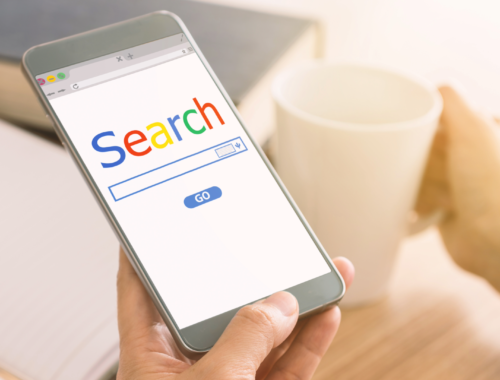Questions To Ask Before Running Paid Ads

Paid ads are a great way to advertise your business and push your product/brand. That being said, there’s a lot of room for wasted spend and little return, so don’t go into it lightly and make sure you’ve considered these factors before pushing the on switch.
Do users go to a high quality website?

The quality of your ads, targeting and campaign structure is irrelevant if users are going to a terrible landing page. This is simply because you can’t just expect PPC to do all of the work on behalf of your website and business.
Far too often advertisers have their ads running to a basic landing page with terrible UX and not optimised for conversion generation.
When you run ads, it’s often the case that this is the first point of contact between your brand and the consumer. This is why it’s vital that your first impression is a good one! Put yourself in the shoes of your target audience, could you see yourself doing business with someone who doesn’t dedicate any time to their website.
If you’re really hesitant about changing your site, a safe alternative would be to build a landing page solely dedicated to PPC/paid ads.
Need some help with this? You should check out our post about building landing pages that are PPC friendly.
Does your budget align with your expectations?

A frequent frustration for PPC managers are clients with big goals and tiny budgets. When in reality you can’t go into PPC with the expectations that your small budget is going to get you hundreds of conversions.
Of course this doesn’t mean that small businesses with smaller budgets shouldn’t run ads, it’s a great opportunity to grow your brand awareness and promote business growth. But go into it with reasonable expectations and understand that likelihood is, it’s going to take longer to generate the data to drive your campaigns in the direction that will generate the results you are looking for.
Do you have the time to run your ads?

A mistake made when running paid ads is that this should be your last ditch effort to generate business or a quick win.
The reality is, this mentality is a dangerous one to have and could potentially cost you a lot of money. Whilst it is a relatively quick win when it comes to traffic, that doesn’t mean your campaigns will be cost effective.
Paid ad campaigns can take anywhere between 3-6 months to be on the more reliable side/lless likely to fluctuate and that’s dependent on the quality of your campaigns, if you have adequate tracking implemented and if they’re receiving ongoing optimisation. This is also not factoring potential testing and trial and error involved.
Going into paid ads with the expectation your first and only campaign will be the winning campaign may lead to some disappointment. The truth is there will be a learning process involved for yourself, your account manager and the platform you are using.
If you don’t have the time to test or the budget to give you the time, consider generating the funding first to prevent throwing all of your budget away in the first month in the attempt to get results as quickly as possible.
Do you have any other ways of generating business outside of paid ads?
This cannot be said loud enough – DON’T RELY ON YOUR ADS TO DO ALL OF THE WORK FOR YOUR BUSINESS. Only focusing on one platform or medium to generate all of your revenue/ROI is a dangerous game to play.

This couldn’t be more true in today’s climate where tracking restrictions and stricter policies are rising to the surface, meaning targeting has the potential to be less effective. The online space is also more competitive and expensive than ever before. With these factors in addition to many others, it’s now more likely that your ads will fluctuate performance wise on a more regular basis and account bans/ad disapprovals will be rolled out more frequently.
Working on your other marketing such as SEO, email and social media means that if your ads come under fire or see a big performance drop, it’s not a complete disaster as you’ve avoided the dreaded mistake of putting all your eggs into one basket.
It also means you have plenty of positive trust signals that aid the user in their journey. Trust signals are what the user refers to before making a conversion decision, such as a purchase or submitting a lead form. This would include social media, reviews, other blog sites etc.
Who will be managing your ads?
This may be one of the most important decisions you could make in your advertising journey. If you don’t have the budget to hire in-house or an agency and would rather manage them yourself, really take the time to learn and understand paid ads to a reasonable level.
If you are hiring in-house or outsourcing, ask them the questions and make sure they know their stuff. Also ask agencies the question if they outsource their work, agencies who outsource have the potential to charge inflated fees and in some instances can lack the knowledge to service paid ads themselves.


